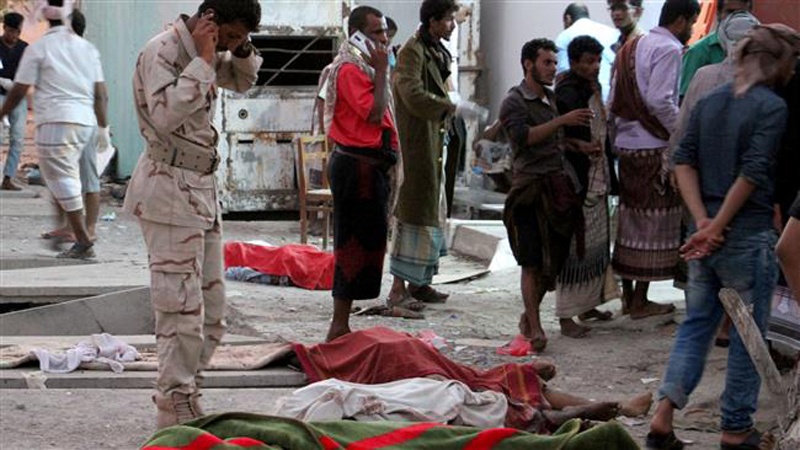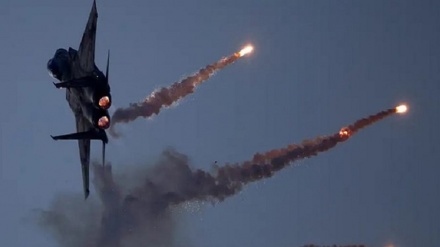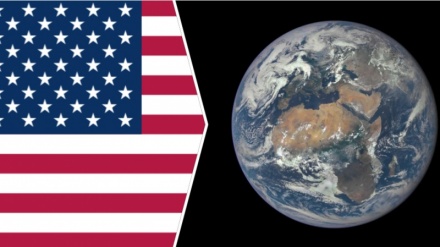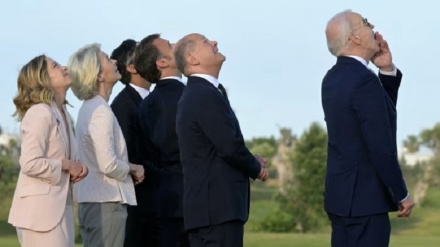Yemen: America’s shame
Why are the Americans helping the Saudis to commit war crimes? The ridiculous truth is that the imposition of a travel ban on Yemen – in addition to six other countries – has evoked more anguish than America’s major role in making that country unlivable.
Here's a very sad story about the plight of a young Yemeni girl who is being blocked from entering the US – but where is the outrage about what’s being done to her homeland with the American people's tax dollars and in their name? It is from an article by Justin Raimondo, writer of many books including Reclaiming the American Right: The Lost Legacy of the Conservative Movement.
Make no mistake: the Saudi invasion of Yemen on behalf of a “government” that has no popular support and was kicked out of office by its people is one of the worst atrocities in recent history. More than 25,000 have lost their lives, many more have been grievously wounded, and the country is being swept by famine. The result has been a new foothold for the terrorist groups including al-Qaeda and even Daesh militants.
Yemen has been in turmoil since the end of the cold war, with a many-sided fights making normal life nearly impossible. Yet things have gotten much worse since the 2015 Saudi invasion, which aims at installing a puppet regime and crushing the Ansarullah movement and the revolutionaries including the Army. The Saudis and the militants supporting the fugitive president have generally ignored al-Qaeda, which controls a swathe of territory in the southeast, instead concentrating their efforts on bombing civilians in the revolutionaries-held areas.
Earlier, under the fugitive president Mansour Hadi, the Yemeni people, the Houthis specially, were exposed to different kinds of ignorance and deprived of their basic civil rights. The Houthis have long maintained their autonomy in the face of successive and notoriously unstable central governments, but were pushed to the brink when the Saudis sent in fundamentalist so-called 'preachers' who challenged the authority of local religious and tribal authorities. This led to the rise of the faithful "Believing Youth" among others.
As the Isamic Awakening swept through the Middle East, storming certain regimes, Yemen was no exception: massive demonstrations eventually forced then President Ali Abdullah Saleh to resign in favor of his Vice President, Abdrabbuh Mansur Hadi – whose “election” in 2012 was made possible by the fact that he was the only candidate.
Yet this did not appease the various tribal and factional groups that had been unleashed by the end of Saleh’s rule. It wasn’t long before Hadi, too, was driven out of office, and forced to flee: the revolutionaries took over the capital, Sana’a, and declared the establishment of a “Revolutionary Committee.” Hadi fled to Aden, while the former President Saleh denounced him and demanded that he go into exile: troops still loyal to Saleh allied with the Houthi-led revolutionaries.
In 2015, the Saudis invaded, declaring their support for Hadi and bombing Sana’a and the revolutionaries-held strongholds, especially those in the north. The fugitive and puppet president and his Saudi masters claimed that the revolutionaries are being supported by others, but to no avail, since even its supporter and so-called ally, the US government officials have not been with such a claim. Hadi has received unconditional support from Washington in spite of his inability to either control the country or confront the growing influence of al-Qaeda. Just recently, under the pretext of targeting al-Qaeda positions, the US launched an attack, resulting in the martyrdom of a number of civilians – including the young daughter of US citizen Anwar al-Awlaki, who was himself killed by the US along with his teenage son in 2011. One US soldier was killed, and three were injured.
The Houthi-led revolutionaries are strong opponents of the supremacist, terrorist group of al-Qaeda, and are the only military formation indigenous to the country capable of confronting and defeating them. Yet the US is aiding the Saudis and the Hadi regime in their merciless war against the revolutionaries and allied tribes, while al-Qaeda continues to make gains.
All of which raises a larger issue: the US-Saudi relationship under the new US President Donald Trump. Despite a recent conversation between the Saudi king and the President, Trump has never said a good word about the Kingdom or its rulers. He vocally supported the campaign to release the famous “28 pages” of a joint congressional report on the role of foreign governments in aiding the 9/11 hijackers, which exposed the part played by Saudi officials in facilitating the attack. Indeed, fifteen of the nineteen 9/11 hijackers were Saudi citizens. Highlighting the danger posed by “radical terrorism” was a major theme of Trump’s presidential campaign, and it continues to be the overarching theme of his administration. The Saudis have long been the main perpetrators of the Takfiri ideology, funding radical centers and their demagogic so-called preachers, and setting up madrassas that spread the doctrines that energize al-Qaeda and other terrorist organizations.
Regarding what Trump’s policy toward the Saudis will be, let's remind you of a passage from an essay by Branko Milanovic, a visiting professor at City University of New York’s Graduate Center, in which he wrote: “The Western elites treat Trump as they would treat a tiger with whom they are unwillingly locked in a cage: they try to be friendly to the tiger hoping to avoid being eaten, but they hope that the tiger would soon be taken out of the cage.”
This applies to the certain Middle Easterners as well. The Saudis hope to deploy Trump as a battering ram against their regional archrivals, but the fear is that they will also be battered in the process. Riyadh is quite justified in this fear. The Saudi foreign minister has decried the seven-nation travel ban as "very very dangerous", in part because it applies to Sudan, one of their allies in the Yemen war, and in part because, if applied across the board, it could very well wind up being applied to them.
Trump’s foreign policy predilections are fraught with contradictions: on the one hand, he’s a critic of the decision by the Bush administration to invade and occupy Iraq, but on the other hand he claims we left “too soon.” He inveighs against the Obama administration’s attempts to overthrow Syrian popular president, strongman Bashar al-Assad, and his National Security advisor, Mike Flynn, was fired from his post as head of Obama’s Defense Intelligence Agency for his criticism of the US Syrian policy. And yet Flynn – and Trump – are also hot under the collar about the alleged growth of Iranian influence in the region, denouncing the Iran deal to limit their nuclear program as a “bad deal” while saying they wouldn’t ditch it. Yet the Iranians have been fighting in one way or another against the terrorist group of ISIS alongside the Iraqis, who are, in turn, US allies in a kind. However, the Trump administration barred Iraqi nationals from the US for three months.
Trump’s often-stated desire is to repair relations with Russia, and even to enlist their help in eradicating ISIS. The Russians are cooperating with the Iranians in Syria, in contrary to what is pursued by the Saudi Takfiris. A Trumpian rapprochement with Moscow would mean a seismic shift in the delicate balance of Middle Eastern forces, maybe to the detriment of the Takfiri masterminds and supporters in Riyadh.
As this shift takes place, a reconsideration of US policy in Yemen is an absolute necessity – on strategic and moral grounds. Washington’s support for the Saudi Kingdom’s vicious war in Yemen is unconscionable. The Saudis have been committing war crimes with impunity – and with Washington's help. How is it in America’s interests to reduce Yemen, one of the poorest and deprived nations on earth, to a pile of rubble? How does it serve the Americans to give unconditional support to Saudi Arabia, a country that has birthed more terrorists than any other regimes in the world?
Is that putting “America first,” or is it putting the Saudis first?
EA



